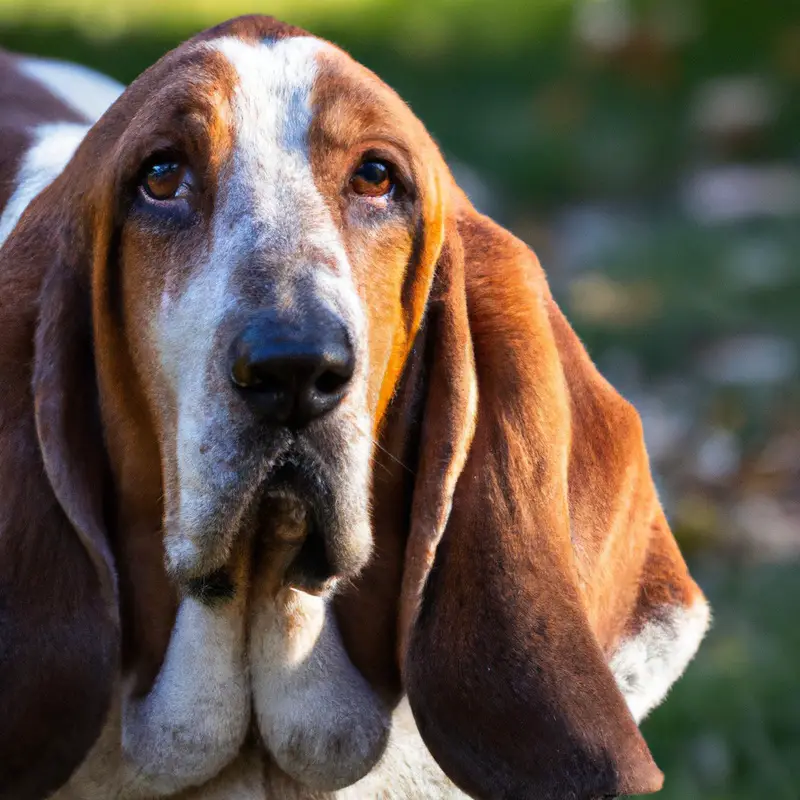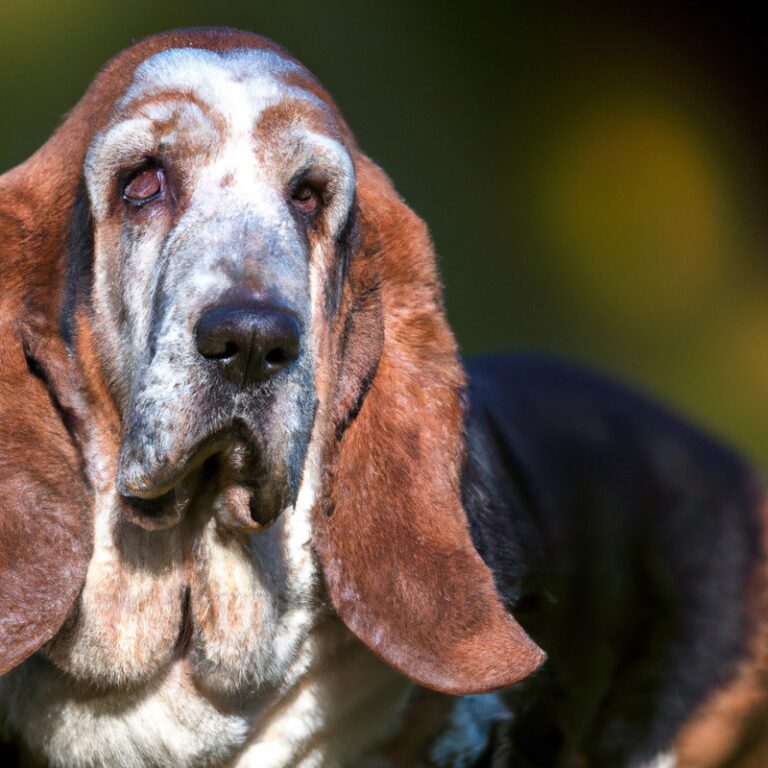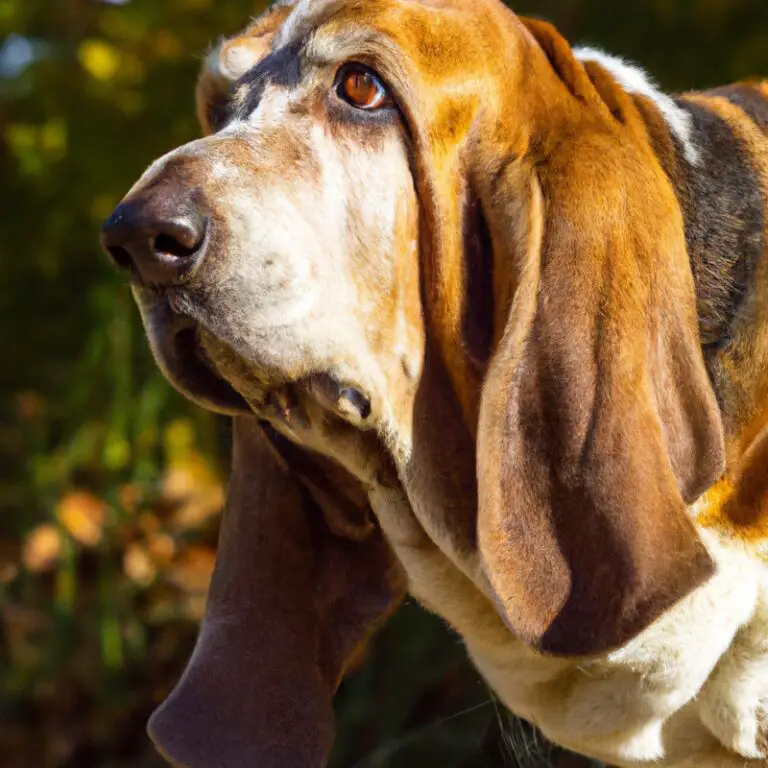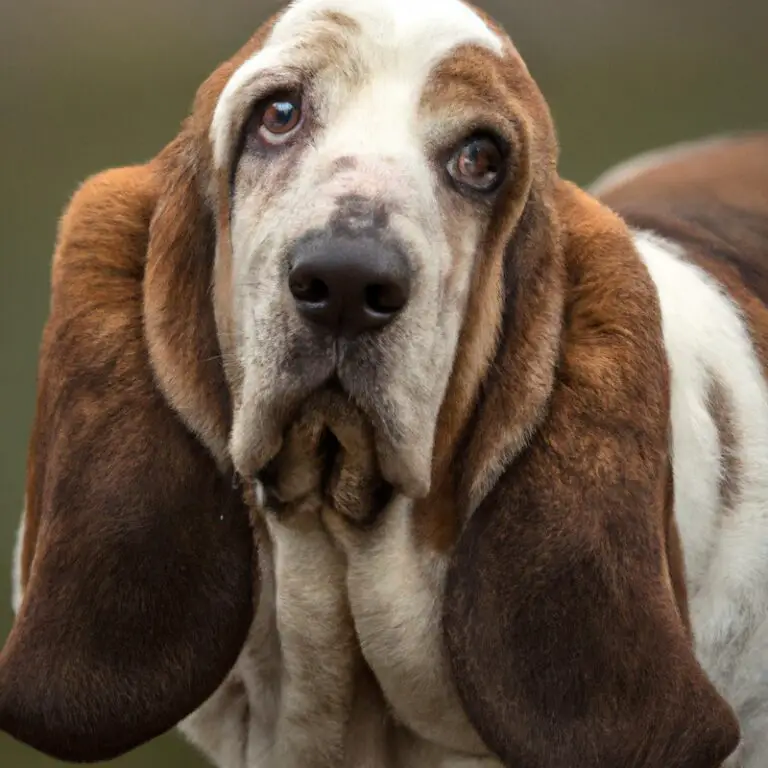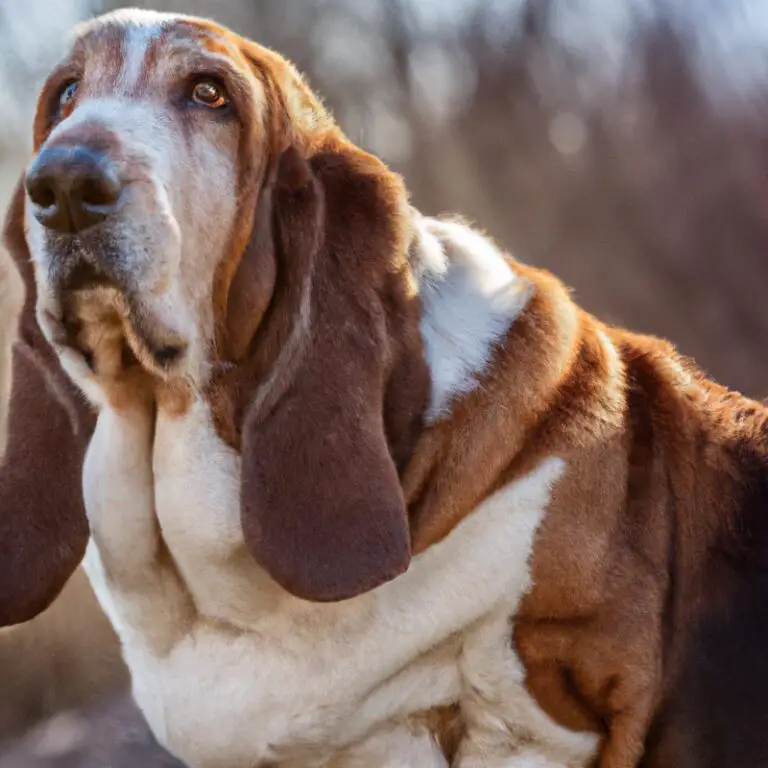Can Basset Hounds Be Trained To Be Therapy Dogs For Children?
Key Takeaways:
- Basset Hounds can be successfully trained as therapy dogs for children.
- Their gentle nature and patience make them well-suited for this role.
- Proper training and socialization are crucial for Basset Hounds to excel as therapy dogs.
- They can provide comfort and support to children with their calm and loving disposition.
Are you curious about the incredible benefits that therapy dogs can bring to children?
Well, I’ve got some paws-itively delightful news for you! In this blog article, we’re going to explore the world of therapy dogs and specifically focus on the suitability of Basset Hounds for this important role in children’s well-being.
With their gentle nature and affectionate personality, Basset Hounds possess many qualities that make them ideal therapy dogs for children.
But can they be effectively trained to fulfill this role?
Let’s dive deep into the world of Basset Hounds and find out!
| Question | Answer |
| Can Basset Hounds be trained to be therapy dogs for children? | Yes |
| Training | |
| Temperament | Calm, friendly, and patient |
| Trainability | Somewhat stubborn but can learn basic commands |
| Commands | Sit, stay, come, leave it, down, etc. |
| Physical Characteristics | |
| Size | Medium to large |
| Weight | 50-65 pounds |
| Height | 12-15 inches |
| Coat | Short, dense, and water-resistant |
| Pros | |
| Gentle temperament | Well-suited for working with children |
| Good with kids | Patient and tolerant of touch and handling |
| Size and weight | Can provide a grounding presence for children |
| Cons | |
| Stubbornness | May require more patience during training |
| Exercise needs | Require regular exercise to avoid weight gain |
| Sniffing and tracking instincts | May get easily distracted during therapy sessions |
The Benefits of Therapy Dogs for Children
Understanding Therapy Dogs and Their Role in Children’s Well-being
Therapy dogs play a vital role in enhancing children’s well-being. These specially trained dogs provide comfort, emotional support, and companionship to children in various settings.
They can help reduce anxiety, improve mood, and boost self-esteem.
Therapy dogs are often used in schools, hospitals, and therapy sessions, where their presence has been shown to decrease stress levels and promote relaxation. These furry friends can make a positive impact on a child’s emotional and psychological state, fostering a sense of security and providing a non-judgmental source of comfort.
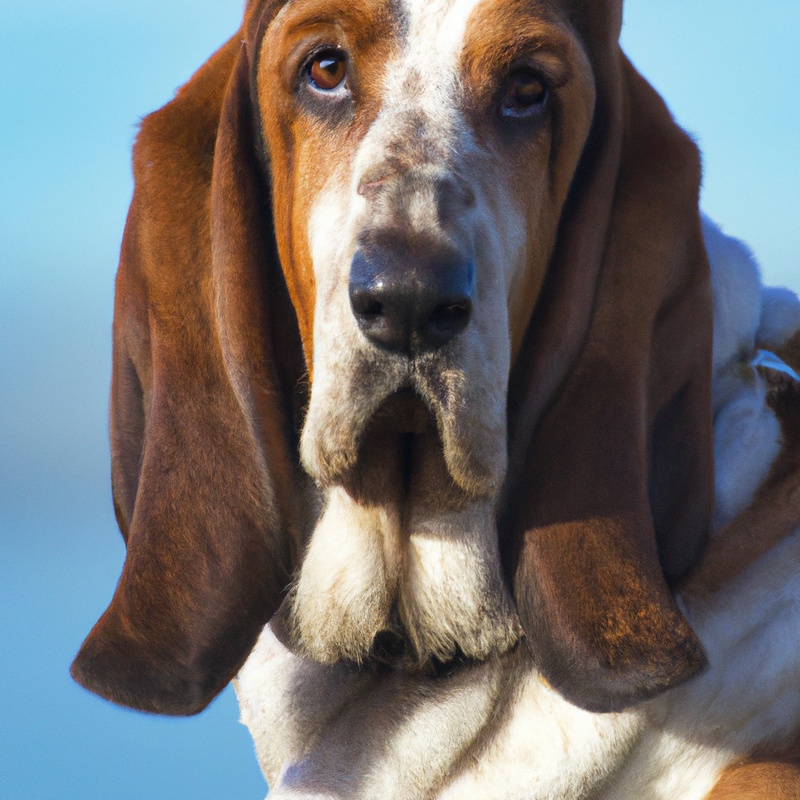
The Qualities that Make Basset Hounds Ideal Therapy Dogs for Children
Basset Hounds possess several qualities that make them excellent therapy dogs for children. Their calm and gentle nature allows them to provide comfort and emotional support.
Bassets have a strong sense of empathy, which helps them connect with children on a deeper level.
Additionally, their size and physical characteristics, such as droopy ears and sad eyes, make them irresistibly appealing to children, fostering a sense of trust and relaxation. The Basset Hound’s patient and tolerant demeanor also makes them suitable for handling the often unpredictable and energetic behavior of children.
Their ability to remain composed in various situations further enhances their effectiveness as therapy dogs for children.

The Training Process: Can Basset Hounds be Trained as Therapy Dogs?
Basset Hounds can definitely be trained as therapy dogs! They may not be the first breed that comes to mind, but with the right training, they can excel in providing comfort and support to children. The key is to start early and be consistent with their training.
Focus on socialization, obedience training, and specific techniques for therapy work.
Incorporate positive reinforcement and play during training sessions to keep them engaged. With patience and dedication, Basset Hounds can make wonderful therapy dogs for children.
So, don’t overlook these lovable and gentle creatures when considering therapy dogs!
Assessing the Suitability of Basset Hounds as Therapy Dogs for Children
Temperament and Personality Traits of Basset Hounds
Basset Hounds are known for their friendly and gentle temperament, making them suitable for therapy work with children. They have a laid-back nature and are often described as patient and well-behaved.
Bassets are also highly affectionate and enjoy being around people, which is beneficial for building a strong connection with children.
Their calm and tolerant demeanor allows them to handle the unpredictable behaviors of children with ease. Additionally, Basset Hounds have a keen sense of smell, which makes them excellent at providing emotional support and comfort to those in need.
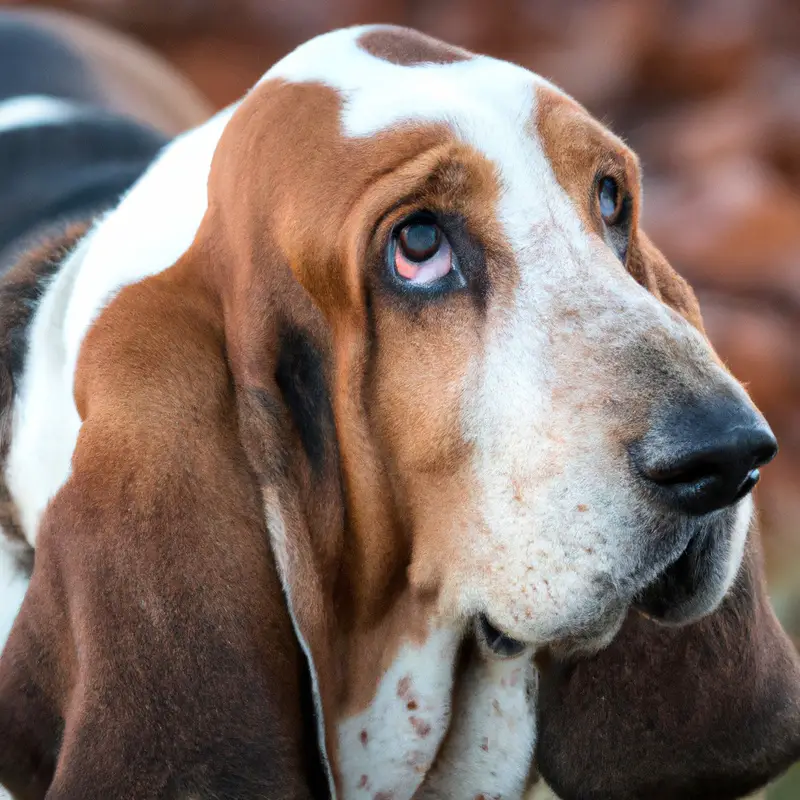
Considerations for Children with Allergies or Asthma
When it comes to considering Basset Hounds as therapy dogs for children with allergies or asthma, there are a few important factors to keep in mind.
Allergies can be triggered by pet dander, so it’s crucial to assess if the child is specifically allergic to Basset Hounds.
Additionally, regular grooming and cleaning can help minimize dander and reduce allergic reactions.
If the child has asthma, it is essential to consult with a healthcare professional to determine if having a therapy dog is suitable for their condition.
Understanding Basset Hound Behavior and Potential Challenges
Basset Hounds have their own unique behaviors and potential challenges. They are known for being independent and stubborn, which can make training a bit of a challenge.
They also have a strong sense of smell and may get easily distracted when following scents.
It’s important to be patient and consistent in training. Basset Hounds are prone to obesity, so monitoring their diet and providing regular exercise is crucial.
They also have long ears that can trap moisture, leading to ear infections.
Regular ear cleaning is necessary. Additionally, Basset Hounds may have a tendency to howl or bark loudly, so proper socialization and training are key to addressing any potential noise issues.
Training a Basset Hound to Become a Therapy Dog for Children
Socialization and Obedience Training for Basset Hounds
Socializing a Basset Hound is important to ensure they are comfortable and well-behaved around people and other animals.
Exposing them to different environments, sounds, and experiences from a young age can help them become more confident and adaptable.
Obedience training is also crucial for Basset Hounds to learn basic commands and good behavior.
Consistent positive reinforcement, such as treats and praise, can be effective in their training.
Patience is key, as Basset Hounds may have a stubborn streak.
Specific Training Techniques for Therapy Work
When training a Basset Hound for therapy work with children, it’s important to focus on specific techniques that promote positive interactions and behaviors.
Here are some effective training techniques:
- Socialization: Expose your Basset Hound to different environments, people, and situations to help them feel comfortable and adaptable.
- Obedience Training: Teach basic commands such as sit, stay, and come, ensuring your Basset Hound responds reliably in various situations.
- Desensitization: Gradually introduce your Basset Hound to different stimuli such as noise, touch, and movement to prevent sensitivity or fear-based reactions.
- Gentle Handling: Teach your Basset Hound to be calm and relaxed during physical interactions, such as petting or being hugged, to ensure they provide comfort to children.
- Boundary Training: Teach your Basset Hound to respect boundaries and avoid jumping, while still engaging with children in a controlled and gentle manner.
Remember, positive reinforcement and patience are key during the training process.
Tailor your techniques to suit your Basset Hound’s individual needs and personality.
Incorporating Play and Positive Reinforcement during Training
Incorporating play and positive reinforcement during training is essential for successfully training a Basset Hound to become a therapy dog for children. During training sessions, I encourage you to make it enjoyable and interactive for your dog by incorporating play into their training routine.
This could involve using toys, treats, or games to keep their attention and enthusiasm high.
Positive reinforcement, such as praise and rewards, is also crucial in reinforcing desired behaviors and helping your Basset Hound associate training with a positive experience. Remember to keep the training sessions short and frequent to maintain engagement and progress.
Tips for Using Basset Hounds as Therapy Dogs with Children
Proper Introduction and Interaction between Basset Hounds and Children
When introducing Basset Hounds to children, it’s essential to ensure a safe and positive interaction. Here are some key tips:
- Always supervise the interaction between the child and the dog to prevent any mishaps.
- Teach the child to approach the dog calmly and gently, avoiding sudden movements.
- Encourage the child to offer their hand for the dog to sniff before petting.
- Teach the child to pet the dog gently, avoiding pulling on the ears or tail.
- Remind the child to respect the dog’s boundaries and not to bother them when they are eating or sleeping.
Creating a Safe and Comfortable Environment for Therapy Sessions
Creating a safe and comfortable environment for therapy sessions is essential when using Basset Hounds as therapy dogs with children.
Here are some important considerations:
- Prepare the space: Ensure that the therapy room is clean, organized, and free from any potential hazards or distractions.
- Familiarize the child: Introduce the child to the therapy room and the dog in a calm and friendly manner, allowing them to feel comfortable and at ease.
- Set boundaries: Establish clear guidelines for both the child and the dog, creating a structured environment that promotes safety and respect.
- Provide relaxation aids: Utilize calming elements such as soft music, gentle lighting, or sensory toys to help create a soothing atmosphere during therapy sessions.
- Monitor interactions: Supervise the child’s interaction with the dog at all times, ensuring that both are comfortable and engaged in positive experiences.
Remember, by creating a safe and comfortable environment, therapy sessions can be more effective in promoting the well-being of children when working with Basset Hounds as therapy dogs.
Establishing Boundaries and Supervision for the Safety of Both Dog and Child
To ensure the safety of both the dog and the child during therapy sessions, it is important to establish clear boundaries and provide proper supervision.
- Set guidelines: Establish rules and limits for interactions between the dog and the child. For example, teach the child to avoid pulling the dog’s ears or tail, and discourage rough play.
- Supervise closely: Always have an adult present to oversee the therapy session and intervene if necessary. This ensures that any potential issues or conflicts can be addressed promptly.
- Teach gentle handling: Educate the child on how to properly interact with the dog, emphasizing gentle touches and appropriate behavior. Reinforce positive interactions and discourage any rough or aggressive behavior.
- Provide a safe space: Create a designated area for therapy sessions that is free from hazards or potential dangers. This could include removing small objects or furniture that could be knocked over during play.
- Use positive reinforcement: Reward both the dog and the child for good behavior and proper interactions. This helps to reinforce positive behaviors and encourages a safe and respectful environment.
By establishing boundaries and providing effective supervision, we can ensure that both the dog and the child have a safe and enjoyable therapy experience.
The Impact of Basset Hounds as Therapy Dogs on Children’s Well-being
Emotional and Psychological Benefits for Children
Children who interact with Basset Hounds as therapy dogs can experience a range of emotional and psychological benefits. These loyal and gentle dogs provide comfort and companionship, helping children feel less anxious and more at ease.
Basset Hounds can also improve children’s self-esteem and confidence as they build a bond with their furry friend.
Additionally, the presence of a therapy dog can promote emotional regulation and reduce stress levels in children, creating a positive and soothing environment. Overall, the emotional and psychological benefits of Basset Hounds as therapy dogs for children are significant and transformative.
Enhancing Social Skills and Confidence through Interaction with Basset Hounds
Interaction with Basset Hounds can greatly enhance social skills and confidence in children. The gentle and patient nature of Basset Hounds allows children to practice their communication and socialization skills in a non-judgmental and safe environment.
By spending time with these friendly dogs, children can learn how to establish and maintain boundaries, how to read and interpret body language, and how to interact with others in a positive and respectful manner.
This can boost their self-esteem and give them the confidence to engage with their peers and build meaningful relationships.
Examples of Success Stories and Testimonials from Therapeutic Programs
I’ve seen so many heartwarming success stories and testimonials from therapeutic programs involving Basset Hounds as therapy dogs for children.
One program shared how a shy and withdrawn child started opening up and expressing herself more after interacting with a Basset Hound.
Another program reported that children with behavioral challenges showed improvement in their social skills and self-control through their interactions with these gentle dogs.
Parents and caregivers have consistently praised the positive impact that Basset Hounds have on their children’s well-being and emotional development.
These success stories serve as a testament to the incredible power of Basset Hounds as therapy dogs for children.
Final Verdict
I firmly believe that Basset Hounds can be trained to be exceptional therapy dogs for children. Their gentle nature, patience, and affectionate temperament make them ideal companions for young ones in need.
With proper training and socialization, these lovable hounds can provide emotional support, enhance social skills, and boost confidence in children.
By incorporating play and positive reinforcement, we can harness the incredible therapeutic potential of Basset Hounds. So, if you’re considering therapy dogs for children, don’t overlook the wonderful qualities that Basset Hounds bring to the table.
Trust me, they can make a lasting impact on a child’s well-being.

